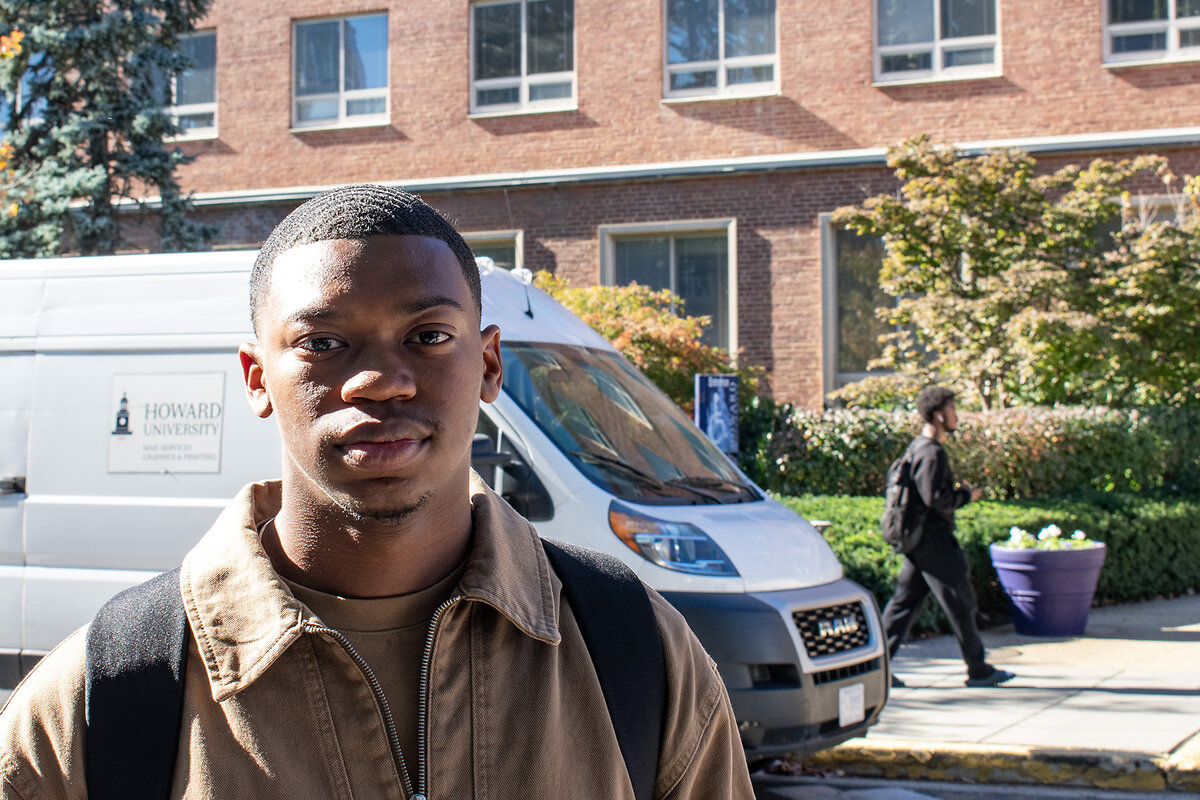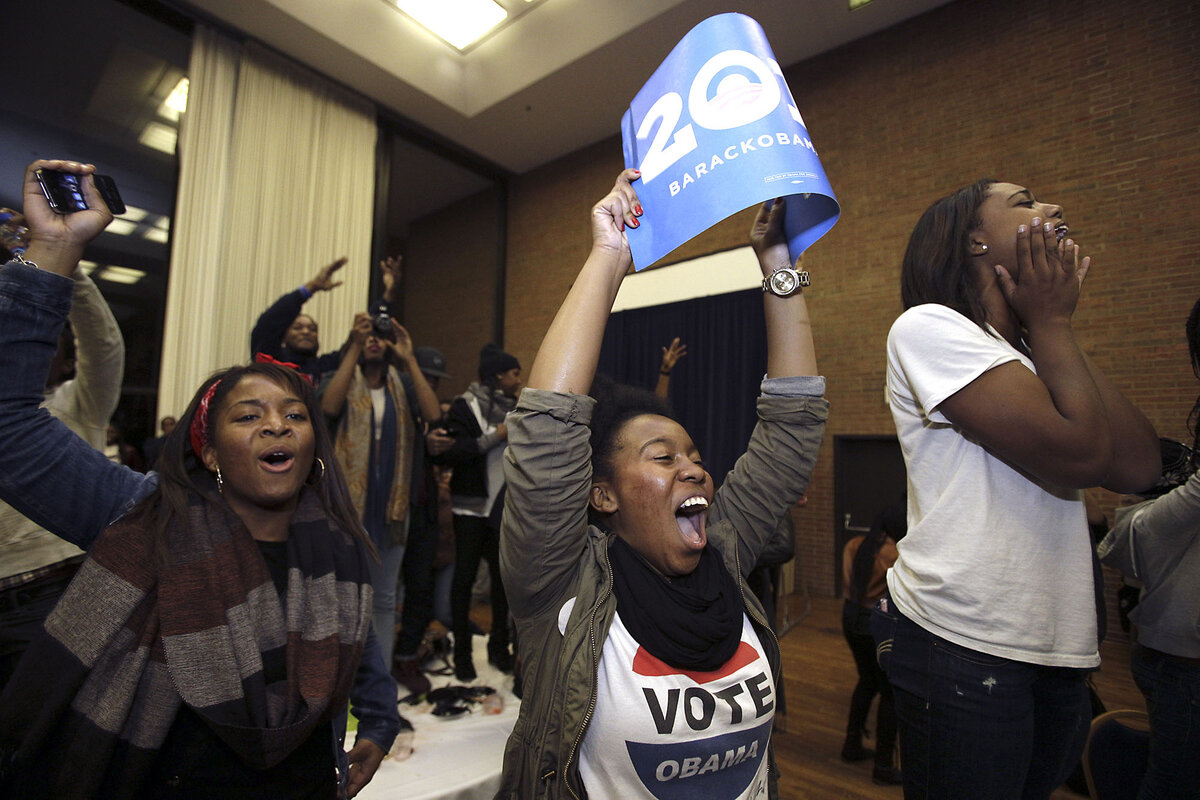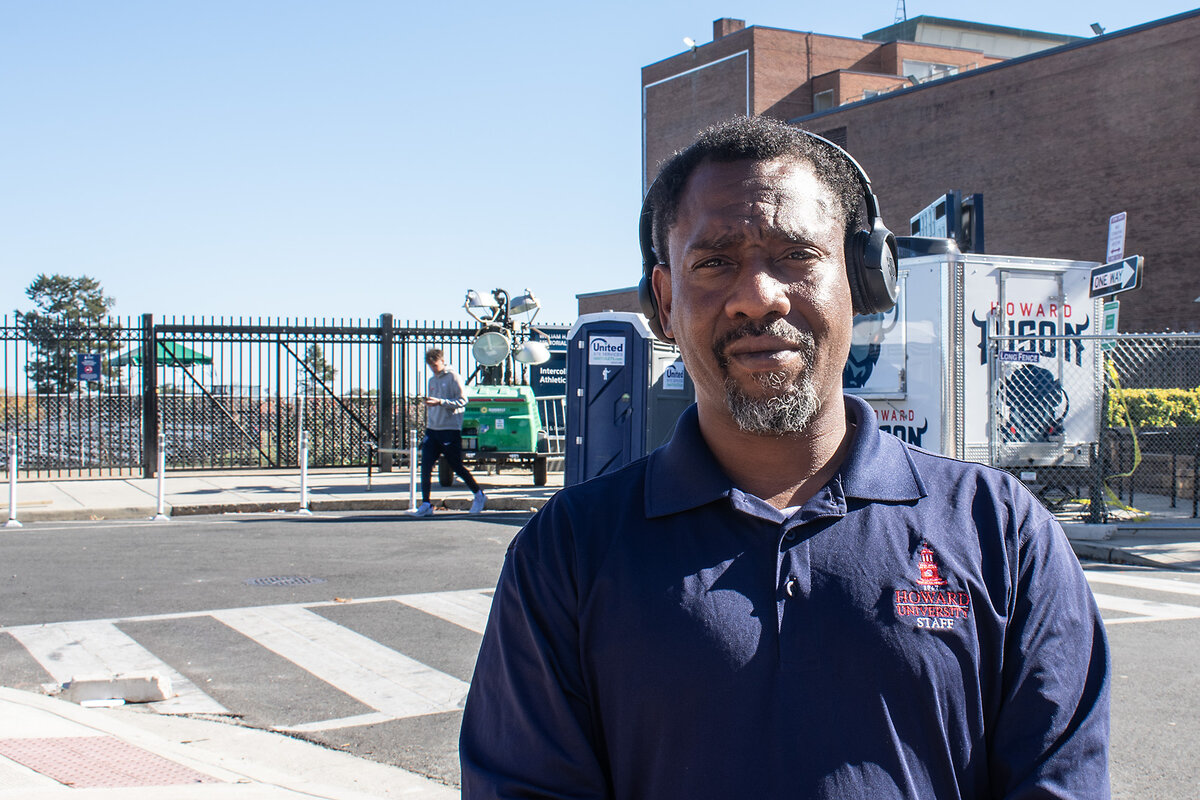Howard University hoped to make history. Now it’s ready for a different role.
Loading...
| Washington
Kamala Harris’ visit to Howard University had the makings of a celebration.
The presidential candidate had come to her alma mater the night of the election, hoping to share a moment of history. There are few places that carry the name mecca, but this campus, as perhaps the most recognizable Black university in the United States, wears it well.
Then the results came, and what had seemed a homecoming became a homegoing of sorts. Yet the shift underlined Howard’s importance for other reasons. After a campaign that often brought racial issues to the surface, how did this American mecca feel?
Why We Wrote This
A story focused onKamala Harris hoped to declare victory at Howard University on election night. That didn’t happen. So many students at one of America’s top Black universities are turning to the question: “Where do we go from here?”
Disappointment found voice in frustration and disbelief but also a renewed conviction.
“To be on Howard’s campus is in many ways, I think, a testament to the good in America, and to see one of your own come through, you feel like she has your best interests in mind,” says Alex Blocker, standing outside of The Yard, flanked by grand brick buildings and a towering American flag, as workers disassemble the setup the vice president used.
“Then to have her lose in front of you, right – it is devastating,” he says. “So there’s somberness, but I think there’s also a resilience and a renewed fight … beyond the ballot. For a lot of people, we’re trying to figure out: Where do we go from here?”
Perhaps not surprisingly at one of the nation’s most prestigious universities, that reckoning has started with considering this moment in history. Some still struggle with the history that didn’t happen here on election night, particularly given the juxtaposition of the candidates.
“I was very excited to see history being made,” says student Athina Graham, decked in a hoodie and headphones and pausing to consider the way the election unfolded. “But at the end of the day, knowing that the stereotypes put upon us, especially Black women, as you can see, America would rather have somebody who’s … a convicted felon over a Black, educated woman.”
As an associate professor of Africana studies at Howard, Joshua Myers looks at history through a longer lens. He remembers the jubilation on campus when Barack Obama was elected president in 2008. But he felt a certain paradox.
“We had a watch party on campus, and it was weird for me,” he says. “It was weird for me to hear Young Jeezy rapping about this president being Black, [juxtaposed with] the long history of Black radicalism that represents the Howard that I was a part of.
“And then it started raining,” Professor Myers adds. “People screamed out of the building, ‘The ancestors are weeping!’ I’m like, which ancestors? And why are they crying?”
For different reasons, this election, too, felt like one in which the walls of the classroom broadened beyond the campus.
“This is probably one of those turning points for many of them,” Professor Myers says. “This idea that Trump’s first term was an aberration from the norm is exploding in their consciousness now, and it’s painful. But for these students, it’s probably going to deepen their sense of understanding that this is the ground for what the United States is like.”
The fact that openly racist elements endure and are an enthusiastic part of Mr. Trump’s base is sobering, he adds. “White supremacy is the ground; white nationalism is the ground.”
Yet among students and alums here, a common theme emerges: a desire to heal and build anew. And central to that, for many, is resilience – a frustrating and fulfilling part of the Black experience.
“I know that Trump in office isn’t the best thing for us as people of color and for queer people. But you know we’re going to keep fighting,” says student Jordan Reese as she relaxes on a tree-shaded bench in a quieter section of campus. “Sometimes before you see light, you got to see the dark side.”
For Ebony Bush, a Howard alum and instructional designer, that has meant a deeper faith.
“A few months before the election, one of my best friends that I met at Howard reminded me that God is sovereign. I’m grateful she put that in my spirit to meditate upon,” she says.
She said she felt a “heaviness” as the results came in. But Walter Plummer, who manages the facilities for the campus’ dorms, puts aside the question of who won and speaks of the need for a restoration that embraces all.
“Both candidates pushed on the wrong reasons for running. They made it more about a race and a color and not the country itself and what we needed as a whole,” says Mr. Plummer, dressed in work boots and a collared shirt. “We’ve got a lot of issues inside our own country that we need to fix. Families, communities, homelessness, damage from the storms. We need to help our own people.”








